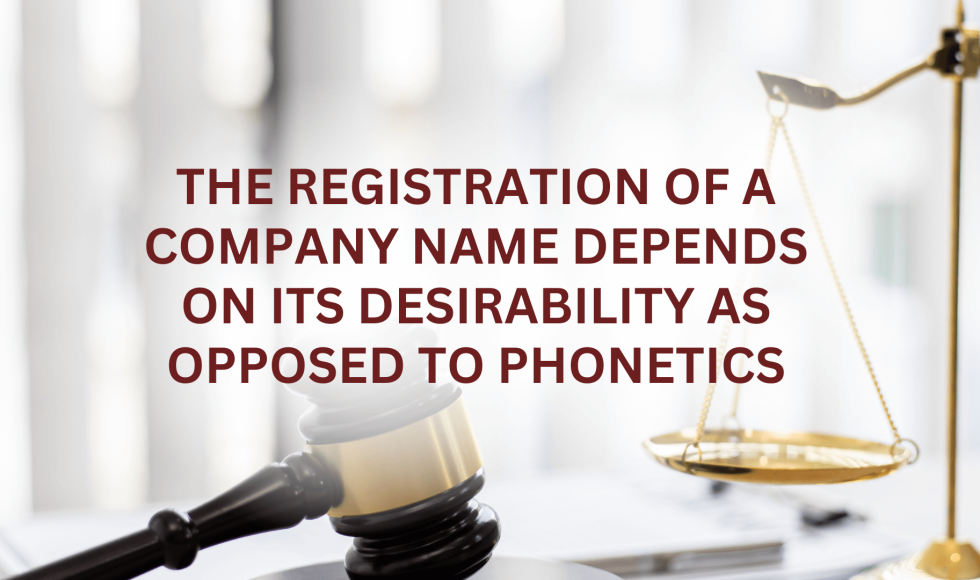A-Plus Funeral Management Ltd V A-Class Funeral Services (U) Ltd & Uganda Registration Services Bureau (Civil Suit 355 of 2020) [2023] UGHCCD 186. Judgment delivered by Hon. Justice Ssekaana Musa on the 30th of June 2023.
Attention!
The only thing considered before a name can be registered is whether or not the public may be misled should the name be registered.
A cause of action in passing off is premised on deception as opposed to “mere confusion”.
Background to the case.
The Plaintiff sued the Defendants for declaratory and other orders founded on the cause of action of passing off. It was the Plaintiff’s case that the 1st Defendant’s name was a “pass off” of the Plaintiff’s name and to that end, its registration was wrongfully and negligently done.
Judgement of the High Court
The Court in dismissing the case, held interalia as follows:
- Company names are approved based on their desirability as provided for under Section 36 of the Companies Act 2012.
- Registration of companies is not determined by phonetic similarity but rather by whether the name may be misleading to the public.
- The standard of misleading/confusion envisaged by the law relating to the registration of names is not that of people who never notice anything but of persons who take more than ordinary care to “observe that which is staring them in the face.”
- In an action for passing off, a misrepresentation that causes deception is what forms the basis for a cause of action as opposed to a misrepresentation that causes confusion since the latter is an inevitable “business misfortune.”
- The Court is cognizant of the barely sufficient protection given by the Companies Act 2012 relating to the registration of new names that are strikingly similar to those already in existence. An action for passing off may therefore be brought to prevent registration of a newly proposed company or to change the name of an existing company whose name is confusingly similar to another company with an established business and reputation.
- An action for passing off may succeed where the integral part of the names of the two companies are synonymous with each other. However, the Court will accept comparatively small differences as sufficient to avert confusion.
- It therefore follows that the 1st Defendant’s name is not confusingly similar and thus a cause of action in passing off could not be maintained against it.
The Ruling of the court of Appeal
The Respondents were dissatisfied with this ruling, so they appealed to the Court of Appeal. The Court of Appeal in allowing the appeal with costs set aside all the orders of the trial court and remitted the case to the High Court for trial based on the pleadings of the original plaint and defense on the grounds that a plaint can not be amended to introduce a new cause of action.
Effect of the judgement
This Judgment has put to rest the hitherto existing confusion surrounding the registration of a name by the Registrar of Companies. It has clearly interpreted the parameters set out under Sections 36 and 37 respectively of the Companies Act 2012 regarding name desirability. It is therefore a welcome addition to our jurisprudence in that regard. This notwithstanding, the Judgment left a grey area regarding the “confusion test” concerning a cause of action founded on passing off arising out of a similar name. Whereas the Court seems to suggest that confusion is not enough but rather an element of deception is what constitutes the cause of action, it still appears to indicate that confusion is still a major component of this cause of action. This leaves a hazy area regarding confusion as an ingredient of passing off premised on a similar name.
Concluding Observationas
In as much as the issue of name registration under the Companies, Act 2012 has been fully explained, a lacuna still remains regarding passing off and how much the ingredient of confusion to the public should be considered. This has the effect of leaving it at the discretion of the Court on a case-by-case basis with the end result of a possibility of conflicting decisions. It therefore remains to be determined whether indeed confusion by itself is a trivial or major component of the tort of passing off founded arising from the similarity of names.
Disclaimer: No information contained in this alert should be construed as legal advice from Namara Musinguzi & Co. Advocates or the individual authors, nor is it intended to be a substitute for legal counsel on any subject matter
Prepared By:
Ann Namara Musinguzi (Managing Partner)
ann@namaramusinguziadvocates.com
Ainomugisha Anita ( Legal Associate)
anita@namaramusinguziadvocates.com



